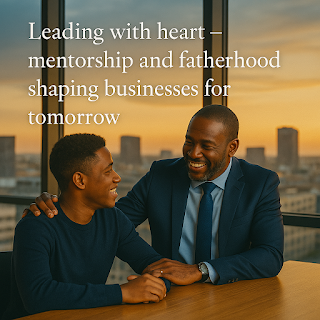TRANSFORMATIONAL CHANGE
Transformation Change. What a broad topic to discuss.
I was
privileged to be invited as the key note Speaker of the 10th
Commencement Lecture of Uganda Martyrs University (UMU) on 05 May 2022. This
was on the eve of the 27th Graduation Ceremony.
UMU is my Alma Mater. I graduated during the 2nd Graduation ceremony on 18th October in 1997. Hence receiving the invitation from the Prof Edrin Kyamanywa – the 4th Vice Chancellor to be the keynote speaker at this August occasion was an honour and humbling.
The theme for the commencement lecture was: “Agility,
Flexibility and Creativity towards Transformational Change.”
Quite a timely theme, as we arise from the worst of
the COVID-19 pandemic.
In preparation for the Lecture, I had to do some reading
and reflection. This has actually sparked a deeper interest for me to delve
deeper into the subject of Transformation and Transformational Change.
As a Personal Development and Leadership Coach, this
is an area that we also spend considerable amounts of time discussing with the Self,
our Clients, Coaches and Mentors
In choosing this theme, as I understood it, the
concern for the University, however, largely focused on transformational
education for a fast-changing world - whereby graduates can be employable.
Drawing on the leadership theories of Warren Bennis and
Burt Nanus – in 1987 a term known as VUCA was used to describe or to reflect on
the Volatility, Uncertainty, Complexity and Ambiguity of general conditions and
situations - in the world at the time. https://en.wikipedia.org/wiki/Volatility,_uncertainty,_complexity_and_ambiguity
On many fronts much has happened since then globally
and locally. And a lot is still happening today. What I think is key, is for
individuals to embrace the fact of the ever-changing world.
Students at Universities, especially in Sub-saharan
Africa have to be conscious that by the time they enroll and graduate, much
could have happened that was not studied in their text-books, hence the theme “Agility,
Flexibility and Creativity towards Transformational Change.”
In discussing this topic during the Commencement Lecture,
it was my view that one has to initiate the Transformation journey by beginning
the practice of self-reflection on a regular basis to build on the new. In fact
the ancient philosopher, Socrates once stated, “The secret to change is to focus all of your energy, not on fighting
the old, but building on the new”
Transformation by its very nature is about change. It
could be further understood as alteration – from one state to another, for
instance coming from a point of not knowing, to knowing. Once you know, what
you didn’t know before, one could say that transformation has taken place.
Transformational Change therefore, supposes on-going
evolvement. To achieve that, one has to be agile, flexible and creative in
approach. That statement alone suggests that
humanity is continually changing. Isn’t this what has been the quest for man,
time immemorial?
Coming back to the graduates being addressed during
the commencement Lecture, I lay emphasis on being creative. To develop the
ability to cope with the ever-changing world, one has to find ways of
transcending traditional idea, rules, patterns, relationships – finding new
ways of doing things. Basically if you do not think about a new way of doing
better, someone somewhere is doing that. https://www.monitor.co.ug/uganda/news/education/umu-graduands-tipped-on-creativity-3807534
There are two interesting examples I want to share to
illustrate my point: One is Uber and the other is Airbnb. The creators of Uber
revolutionized the taxi industry by creating ease of booking; while Airbnb
impacted the hotel industry by innovating processes. They both had unique
models that heavily relied on technology to disrupt the respective industries. One
can enter the Taxi industry as long as you have a reliable vehicle and start
earning, without the rigorous process of applying for the traditional operating
licenses. Also one can list their home or property as a guest house and compete
favorably with long-established hotels and lodges. This is finding a new way of
doing things. E-mail is another example that has gradually made the traditional
postal service seem obsolete in a relatively short period of time, also due to
technology. Letters and large documents can be sent and received in a fraction of
seconds.
Someone once commented that it is getting easier to do
things faster these days. What would, for instance take 5 years to do, could now
be done in a much shorter time. So transformation is real, whether one
acknowledges it or not.
While it sounds like the concept of Transformation
Change is out there, it is not. Arthur Ashe advises, “Start where you are. Use what
you have. Do what you can”… and I further add… to be agile, flexible and
creative towards Transformational Change.



Comments
Post a Comment